Curriculum
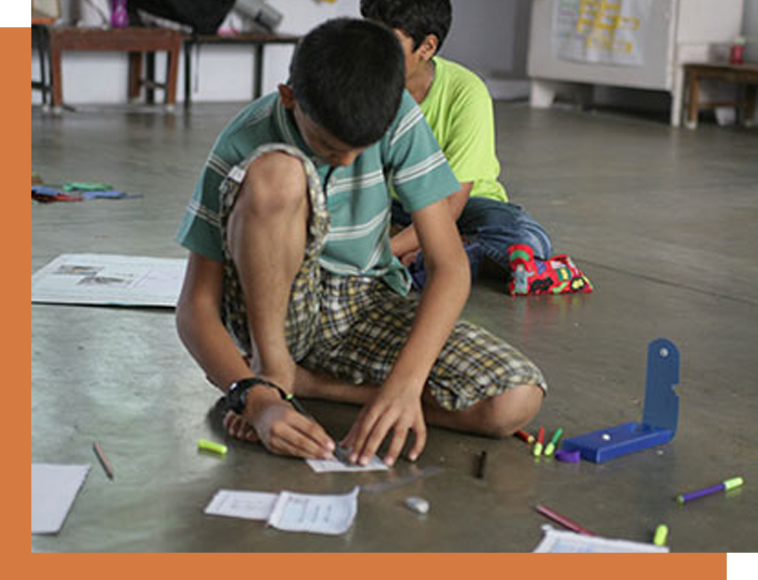
Academic Learning
Students learn all regular subjects through school. The school sees that all subjects are essentially interrelated and that the division of knowledge into subjects serves reasons of practicality. In learning each student must begin from where he or she is and not conform to a standard expectation; and it is for the teacher to nurture this growth in learning. All learning at school attempts to build the student’s understanding of the subject and its relation to life.
The Kindergarten and Class 1 Programmes attempt to keep alive the curiosity of the children encouraging them to explore their surroundings using their senses and to find out by doing. The programme understands that play is work and work is play and seeks to blend the conventional dichotomy.
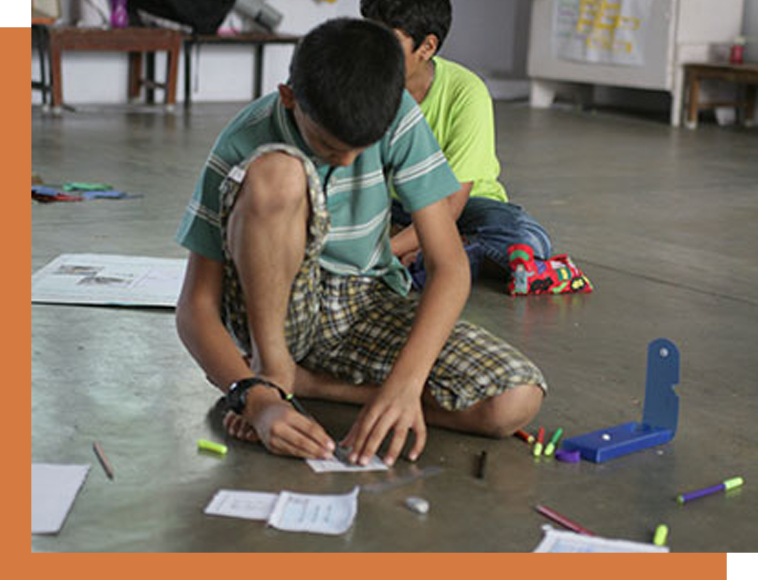
The students of Classes 2 to 7 learn in mixed age groups at Junior School and Middle School. These learning groups are changed every year. The students of Classes 8 to 10 learn in same age groups as do students of Classes 11 and 12 who study different combinations of subjects.
The medium of instruction is English. The students learn both Tamil and Hindi till Class 8 and continue to study either one as an examination subject at Class 10. The school understands that students learn in different ways and at different paces and adopts a variety of teaching-learning processes that allow students to approach learning with understanding. These processes are discussed among staff and reviewed and modified from time to time.
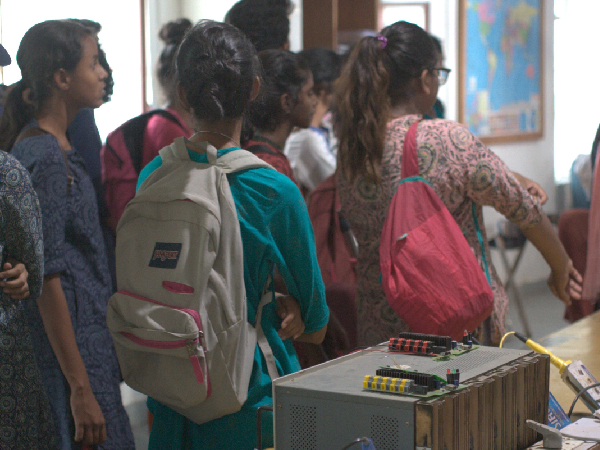
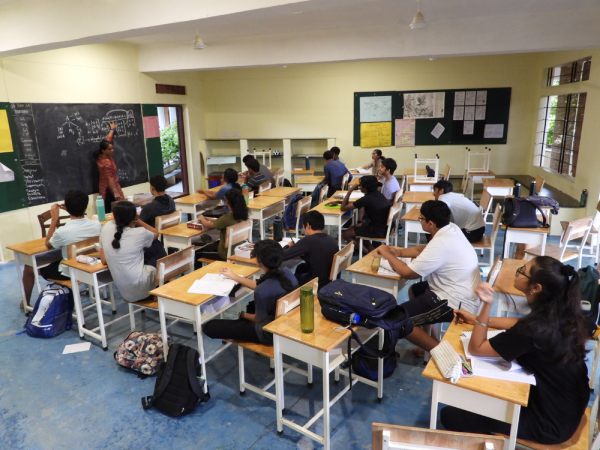
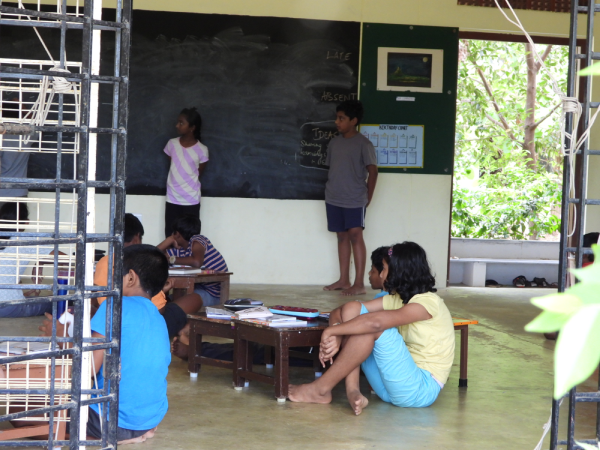
Students of all classes have field studies through day trips in junior school and three to ten day trips in middle and senior school. These move from nature walks and neighbourhood studies to historical and geographical studies to participating in the work of people in different parts of the country.
Physical Activity
Physical Activity is fundamental to education at The School. The course enables each student to engage with his or her capacity, joys and fears involved in physical expression, and to find the ability to face the immediate responses that the activity itself brings out. It demands that in addition to developing skills and techniques, learnt or intuitive to oneself, the student learns to engage with the task or game in a group setting. The student is under no pressure to perform to represent the school in competitive arenas and we hope that each student matures to face the demands of a task or game rigorously and to the best of his or her ability.
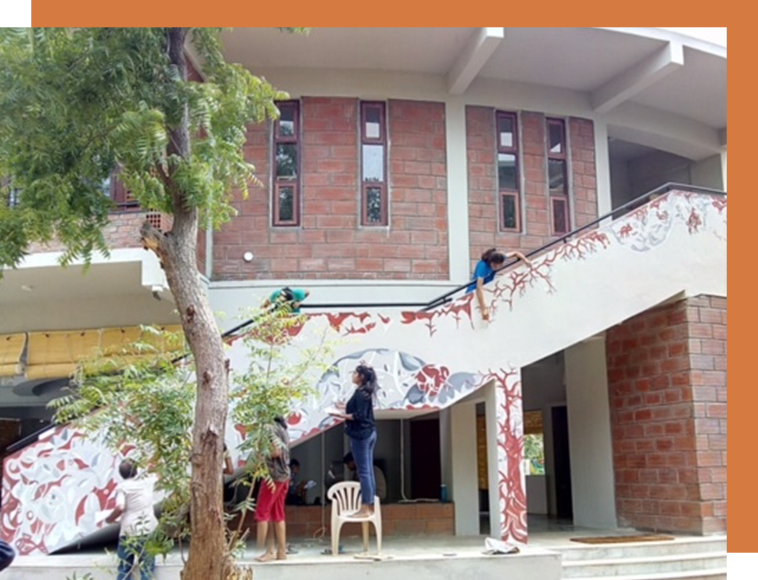

The physical activity programme at school includes activities that stimulate sensorial and motor development, cooperative games, pre-participation tasks to develop specific skills, and organized games like basketball, football, volleyball, cricket and soft ball. Assemblies at school and field trips support the physical activity programme and reflect our concern for a healthy physical culture for a growing individual.
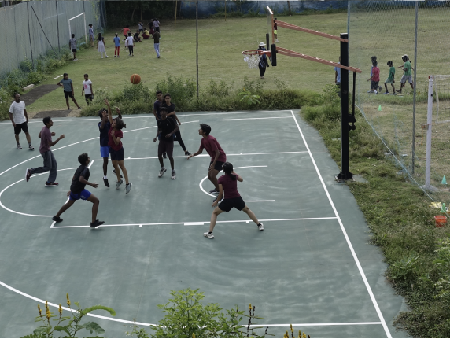
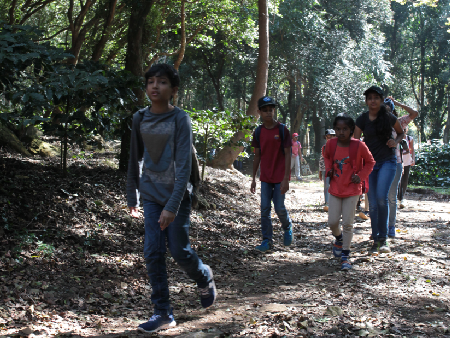
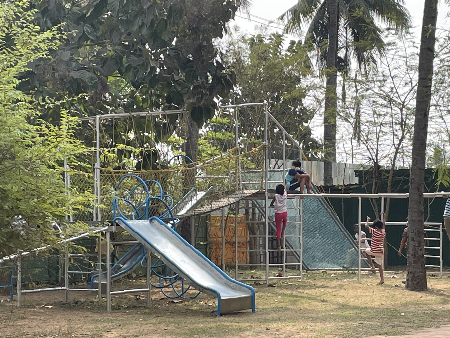
The school is concerned that students experience specific aspects of being – quietness, playing together and individual reflection – and use the sports programme as a ground for this. The students are encouraged to think and talk about the various contemporary issues related to sport – food, clothing, equipment, glamour, entertainment and money.
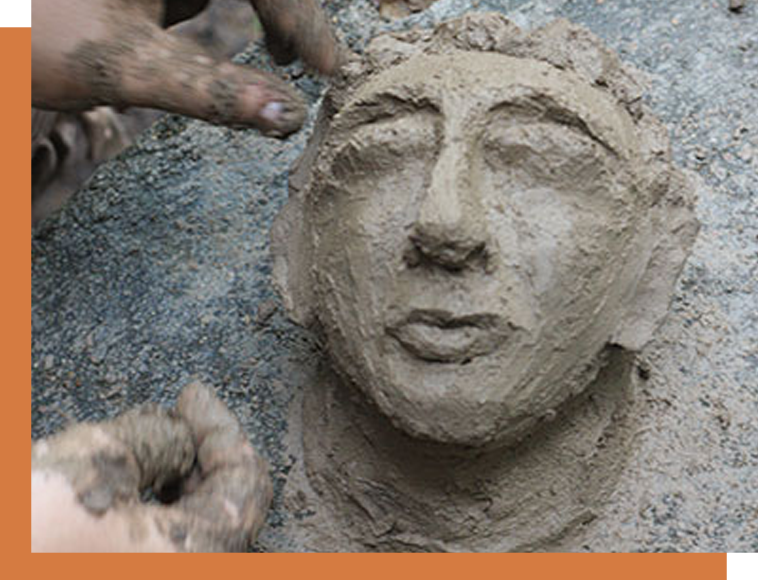
Art and Aesthetics
The school creates an ambiance that nurtures the student’s creative and aesthetic abilities. At school, art is not so much a skill-learning process as it is an exploration of the environment, material and a student’s own experience of life. Art in school focusses on observation and innovative expression.
Students are encouraged to use diverse materials – paper, clay and objects picked from the surroundings. Students work with different forms of art and craft – folk, the classical and the modern. Art and craft also form a part of their own study of subjects and project presentations.

In addition children learn through participation in designing the posters, back drops and installations for various school events. Through the years students learn craft, weaving, clay modelling, theatre and cooking.
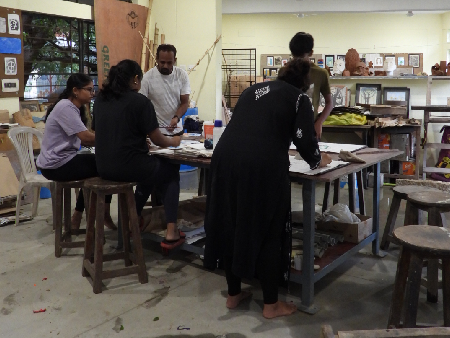
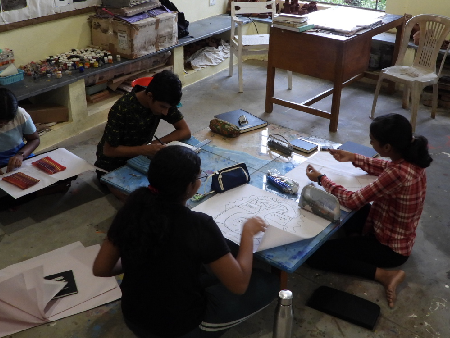
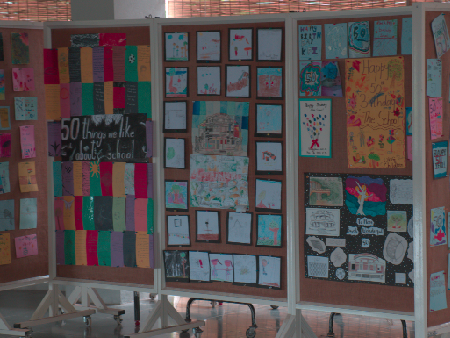
In Classes 11 and 12 Art and Sculpture are taught as subjects for the ISC course and students are introduced to specific aspects such as composition and perspective and skills in greater detail, complexity and criticality
Art Forms
Class 8 students talk about the process of creation of art
Breaking the Banal
A display of artwork at school
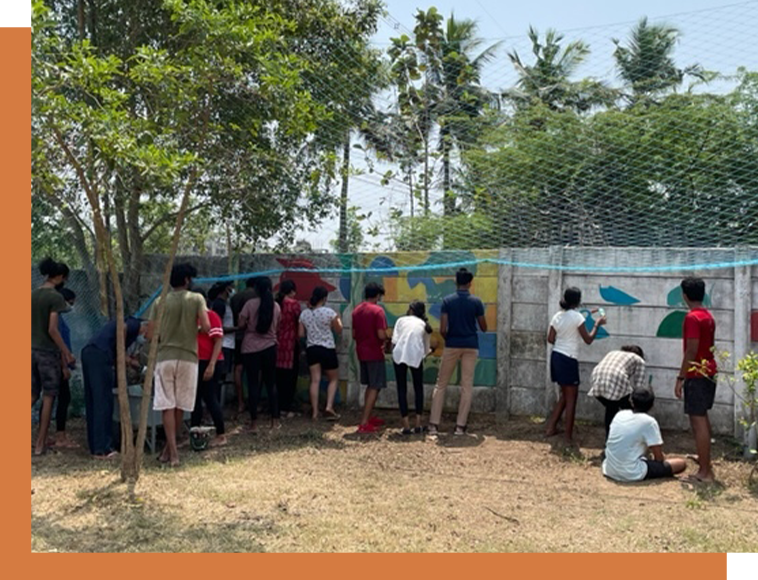
Culture Classes & Discussions
Teachers and students hold discussions on themes relating to life – on subjects of fear, pleasure, hurt, ambition, co-operation and responsibility at various levels of understanding. The everyday experiences of the children in the peer group, in class, at home, and from the media, form contexts for such explorations. These discussions are vital to the growth of the child.
Classes 11 and 12 have a General Studies course that examines contemporary issues of social, psychological, economic and environmental significance. This involves critical reading, watching documentaries, thinking and discussion

Students at all levels meet together to learn about safety. These sessions include being aware of one’s emotions, respect for each other and care, and questions around media and peer influence, the internet and social media platforms and personal safety.
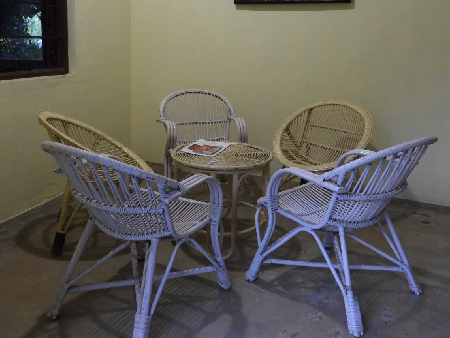
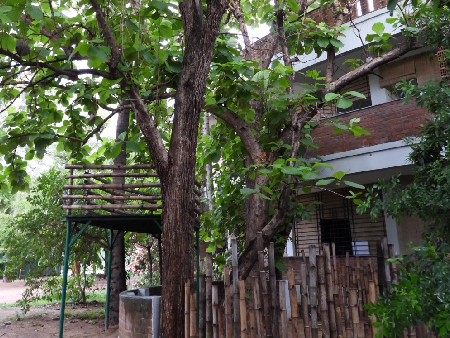
Work, Participation and Responsibility
All students and staff work to clean the classrooms, dining hall and the campus. Such work involves sweeping, washing, arranging furniture, gardening and making small constructions.
Students in senior school contribute to work outside of their homes and school to organisations that work with education, health, old age, animal welfare, care of trees and beaches and such like. This work continues in a focused manner during their field trips to various parts of the country where they learn about and contribute to significant work by the people of the locality
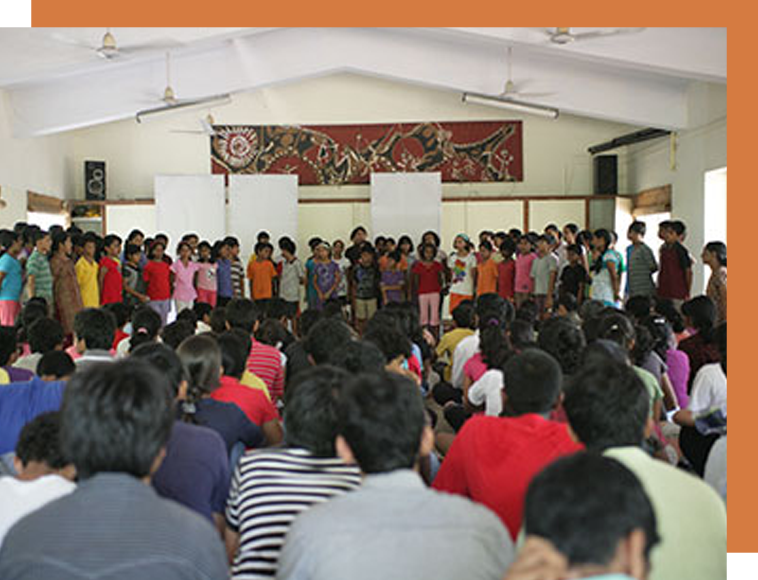

Assemblies at all levels are participatory in nature and a time for coming together. Students and staff also come together for special presentations by a teacher, a class, a parent of an invited speaker every week
Assemblies at all levels are participatory in nature and a time for coming together. Students and staff also come together for special presentations by a teacher, a class, a parent of an invited speaker every week
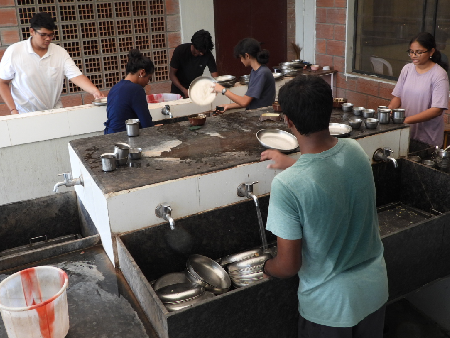
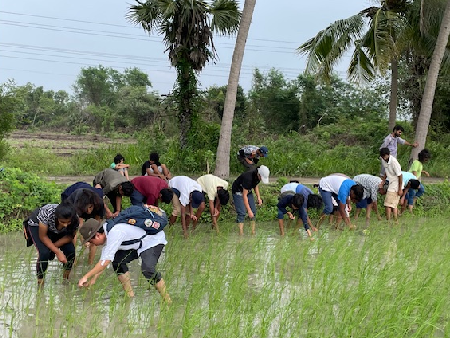
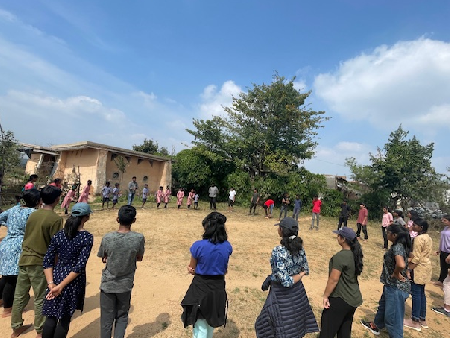
Work in Progress
These materials have been created by the teachers of The School KFI. The reader is welcome to download the files and use them in their totality, in part or as inspiration.
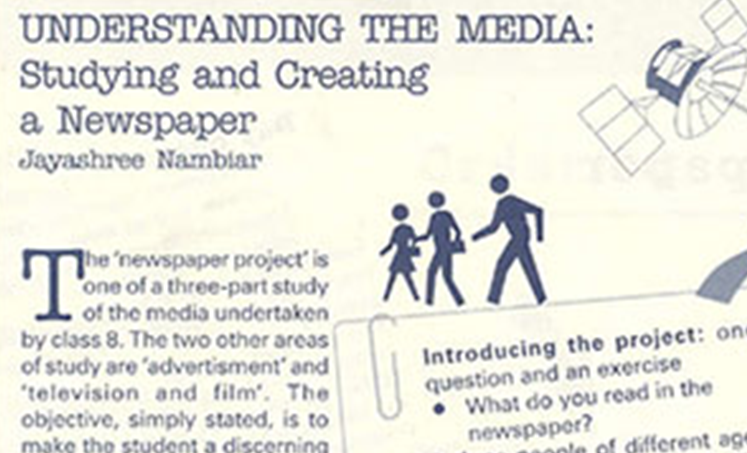
Understanding the Media: Studying and Creating a Newspaper
This study was created as part of a year long course on media education called 'Being a Discriminating User of the Media'. This study may be used as a stand alone project.
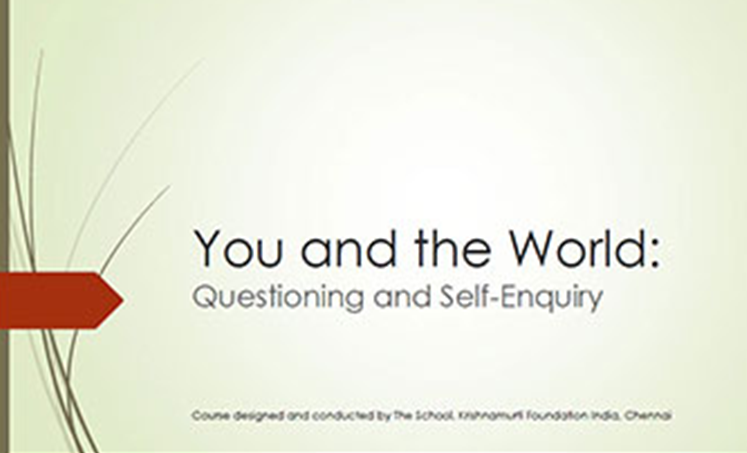
You and the World: Questioning and Self-Enquiry
A twelve-week course offered to fourth year students of IIIT, Sri City, Andhra Pradesh. This could be used as a template to stimulate enquiry and reflection amongst young adults.
